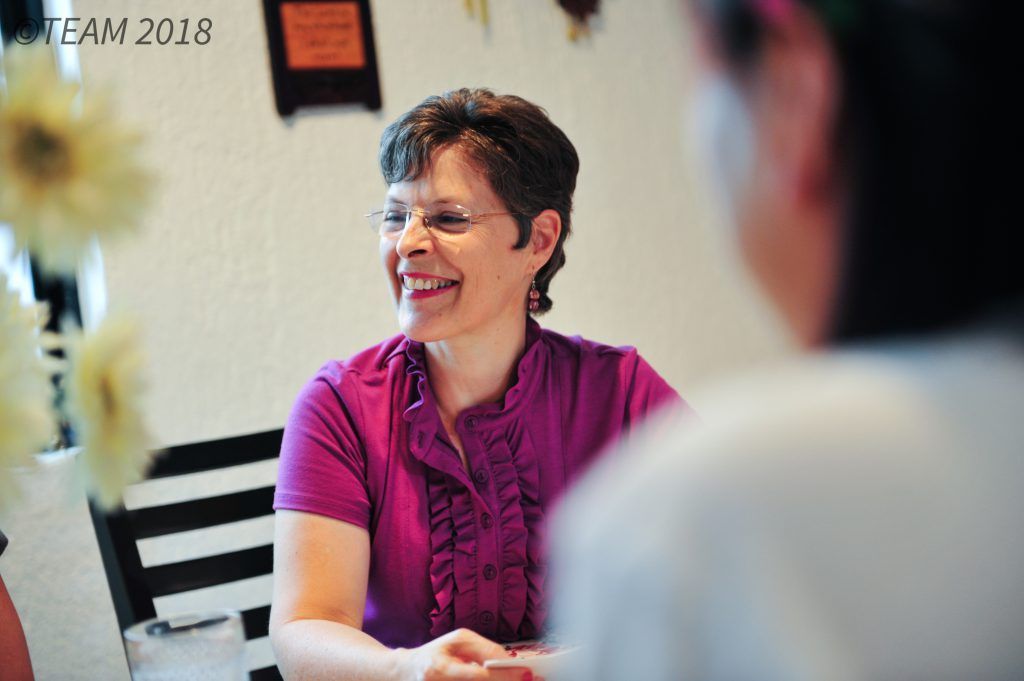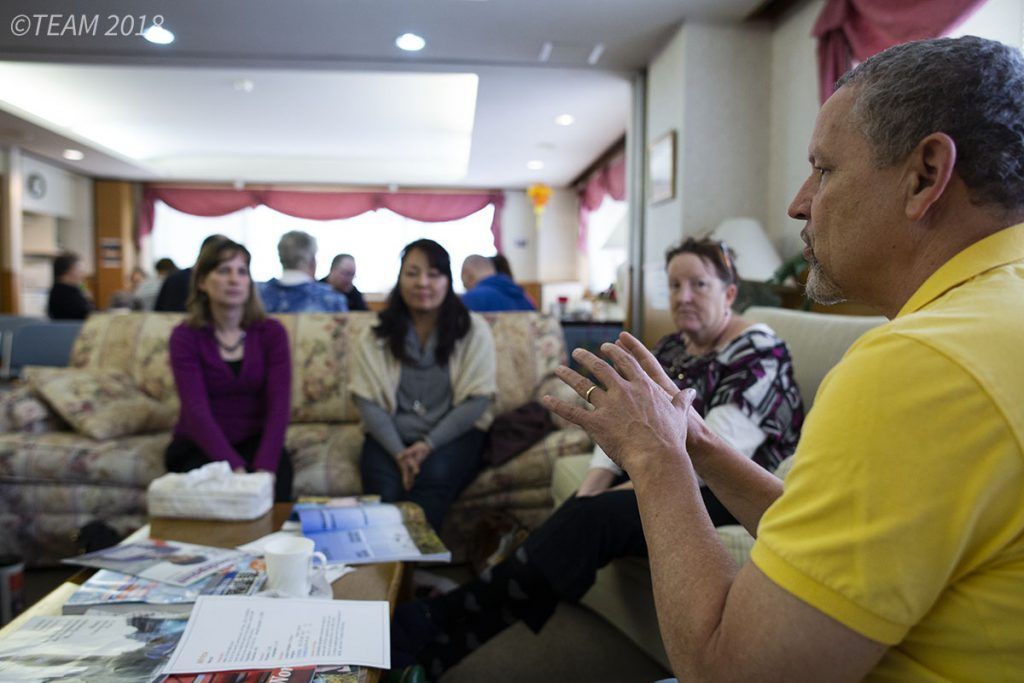“Why can’t you stay with us?”
The question came from TEAM missionary Georgia Landis’ 6-year-old granddaughter, sitting in the backseat of the car.
Georgia was on her way to the airport to return to the mission field. Her daughter drove, with her two kids in the backseat.
After a lovely visit in the States, the heart-wrenching moment that no one was ever ready for had rolled around: It was time to say goodbye. Again.
The coming separation had Georgia and her daughter in tears. So when her granddaughter innocently asked her to stay, it was nearly impossible to say no.
That’s when Georgia’s eight-year-old grandson piped in, “Pearl, God wants [Grandma and Grandpa] in Japan . Do you want them to disobey God?”
Georgia and her daughter wiped their tears.
And Georgia realized that sometimes, God speaks through the most unexpected people, including 8-year-old grandsons.
Being a missionary in your golden years comes with unique challenges. But more and more believers are choosing missions for their second careers or retirements — and finding that God is faithful!
This month, pray with us for missionaries who are serving later in life. Pray that through their service and wisdom, many lost souls will come to know Jesus.
Sign up here to get the new Prayer Focus in your inbox each month.
1. Pray for good communication between missionaries and their kids and grandkids.
Most missionaries over the age of 50 will tell you that one of the hardest parts about serving overseas is being separated from adult kids and growing grandkids. Not always being physically present for the milestones in the lives of their loved ones is tough. But Georgia’s husband, Ray, says there are creative ways to make it work.
“Know that you can still remain connected to your family, friends and church back home through Skype and other forms of social media,” he says.
Pray that God will reassure missionaries that they are right where they need to be. Pray that they will find ways to feel connected to their loved ones back home.

Living overseas sometimes means that communication can be difficult. For missionaries over 50, this means that they may not get to speak with their kids and grandkids as often as they like.
2. Pray that missionaries will be gracious with themselves when it comes to language learning.
Most scientific research says that learning a new language becomes much harder once you reach adulthood . This is often a big fear for missionaries who move to the field later in life. But TEAM missionary Lois Dresselhaus says that radiating the love of Christ is even more important than language skills.
“Be patient with yourself. Trust that God can use you powerfully, even if you never get the language down very well,” she says. “Just love the people as best you can!”
Pray that missionaries will be up to the challenge of studying a new language — and not shy away from it. Pray that language learning will come as easily and naturally as possible, regardless of age.

Language learning is more difficult the older a person is. Pray for missionaries who are learning a new language later in life.
3. Pray that missionaries who serve later in life will recognize the value they bring to the field.
Missionaries who serve later in life have wisdom and experience on their side. They bring a high level of life experience with them. This sometimes makes it easier for locals and sending churches to trust the direction of their ministries.
“People have been watching me for over 30 years and they trust me not to do overly stupid things,” says Lois’ husband, Steve. “Being older means I can try new things, experiment and safely break out of the status quo because I don’t have to prove myself anymore.”
Even if they spent most of their lives at home, older missionaries can quickly gain respect in cultures that value age over youthful zeal.
Ask God to show older missionaries how vital they are on the field. Pray that they will see their hard work pay off in the lives of those they mentor.
Thank you for partnering with us in prayer! Click here to get a print-out of this month’s Prayer Focus requests and praise reports.




















